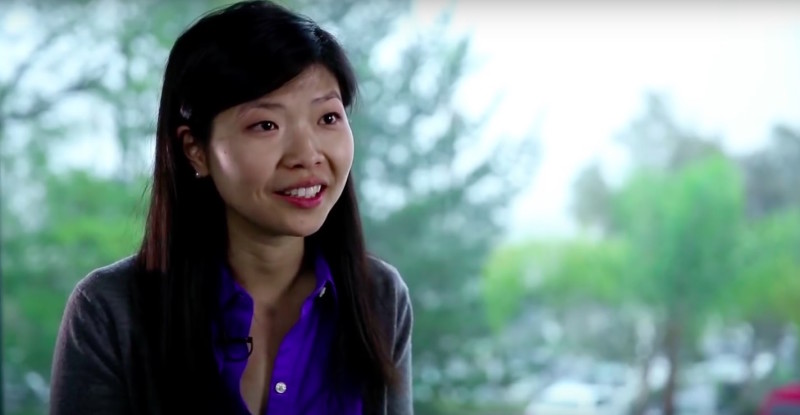 Besides an impressive four patents and four publications to her name, architected materials research scientist Sophia Yang was a member of the GM-Boeing owned HRL (formerly Hughes Research Laboratories) team that developed the metallic microlattice structure, which Boeing calls the Lightest Metal Ever, and which could ultimately be used in structural components of aircraft interiors.
Besides an impressive four patents and four publications to her name, architected materials research scientist Sophia Yang was a member of the GM-Boeing owned HRL (formerly Hughes Research Laboratories) team that developed the metallic microlattice structure, which Boeing calls the Lightest Metal Ever, and which could ultimately be used in structural components of aircraft interiors.
More recently, Yang notes, “I’ve been transitioning to a more enterprise-wide position. Instead of leading projects, I’ve been assisting with project transitions to Boeing, one of HRL’s LLC members. This involves a lot more soft skills in addition to scientific acumen.”
Now walking the line between science and management, Yang tells the story of one educator in particular who helped her discover a passion for science.
“I had an amazing high school chemistry teacher who inspired me to choose chemistry as my major. In college, I was the only girl in an honors physics – instead of being intimidated, I was indignant. I wanted to prove that I belonged there and could keep up with the guys. So part of the reason I became an engineer was because I’m a rebel! I studied chemistry at UCLA and received my Bachelor’s and Master’s.”
“I studied Chemistry for my bachelor degree, so most of my courses were in the physical sciences. Those classes are notionally useful to me now,” Yang notes, explaining that “I would say they have given me a basic understanding of various topics that my colleagues work on. I would love to take programming classes! Most of my coding experience has come second hand, picking them up as needed. But I would like to get formal instruction to see how students are taught in the classroom.”
Mentorship and professional development were incredibly important during her early career, Yang says. “I have been extremely fortunate to have amazing mentors. My first Principal Investigator [lead researcher] at HRL, Dr. Alan Jacobsen, was tough and demanded a lot, but he saw my potential and really challenged me to stretch myself. I was (and still am) a shy person, but he encouraged me to give presentations, which gave me more exposure and opportunities. My first manager, Dr. Bill Carter, set the example for how a manager can be super supportive and foster career growth. Through his guidance I’ve been able to expand my skills beyond just the lab.”
“I was fortunate to have colleagues who were more senior and very supportive of my career, so the mentoring occurred naturally,” Yang says. “I would suggest to aspiring scientists to find individuals with careers that he/she wants to achieve and approach them. Keep in mind that effective mentorship requires work – the mentee should have a list of goals and/or questions to ask the mentor.”
For aspiring scientists and engineers, Yang has a number of suggestions. “Don’t be afraid to ask questions and ask for help! Networking is so important and I’ve found that most senior colleagues are more than willing to help junior scientists advance in their career.”
“Take classes outside of your main field of study. If you are studying in a pure science field (biology, physics, chemistry), take classes in engineering. And vice versa. I believe there is merit to understanding both the pure science and applied science. And for any scientist/engineer – be sure to also take classes completely outside of your field, like Film and Music. This was a class I enjoyed immensely because I was able to work with non-science students and see a different perspective (and we watched lots of movies, which is always a plus).”
“Also,” Yang notes with a smile, “be nice to everyone. The people who are least appreciated (facilities, shipping/receiving, etc.) are the ones who will enable your project to succeed.”
So what’s next for Sophia Yang? “Career-wise, I’m still not sure what I want to accomplish. I just want to keep doing fun things that challenge me and learn from smart people.”











